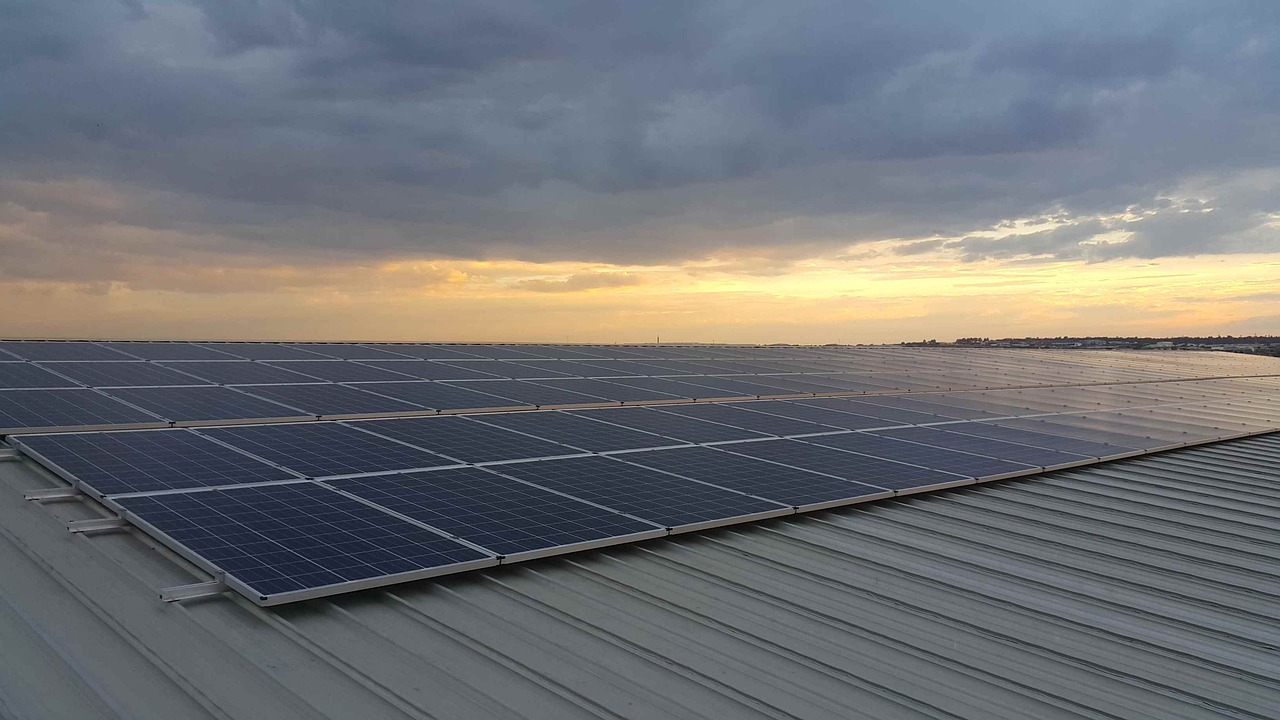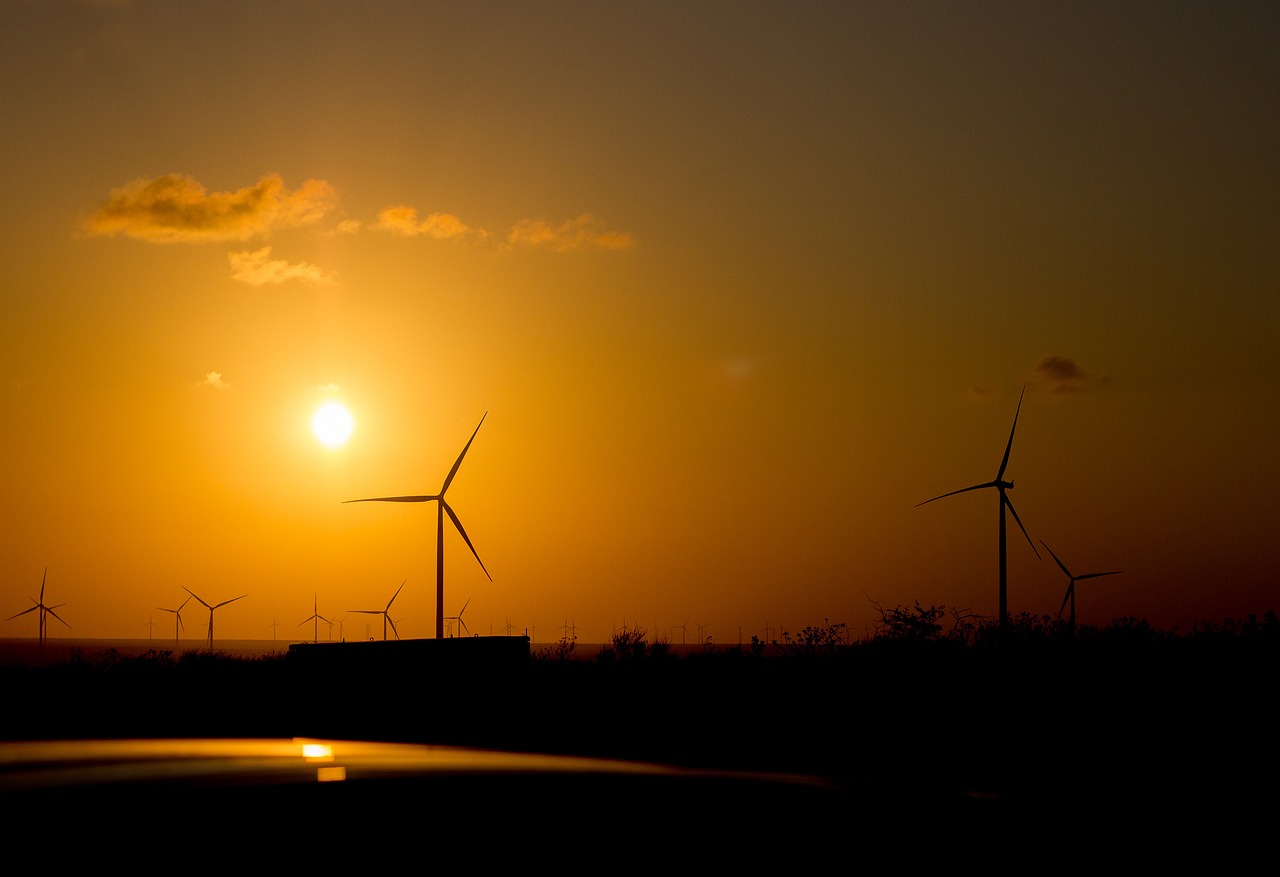Have you ever wondered if you can use solar power to power your air conditioner? Well, the answer is a resounding yes! Solar power is not only a sustainable and eco-friendly option, but it can also significantly reduce your electricity bill and provide long-term financial benefits. By installing solar panels on your home, you can harness the power of the sun and use it to cool your home during those hot summer months. Say goodbye to expensive energy bills and hello to a more environmentally conscious and cost-effective solution. So, let’s delve into the world of solar power and explore how it can keep you cool all summer long!
Can I Use Solar Power To Power My Air Conditioner?
If you’re considering going solar, one important question that may come to mind is whether solar power can effectively power your air conditioner. In this comprehensive article, we will explore the possibilities and considerations when it comes to using solar power for your air conditioning needs.
Understanding Solar Power
Before diving into the specifics of powering your air conditioner with solar energy, it is important to have a basic understanding of how solar power works and its advantages and limitations.
How Does Solar Power Work?
Solar power harnesses energy from the sun and converts it into electricity using photovoltaic (PV) panels. These panels are made up of solar cells that collect sunlight and convert it into direct current (DC) electricity. This DC electricity is then converted into alternating current (AC) electricity by an inverter, which can be used to power electrical appliances in your home.
Advantages of Solar Power
Solar power offers numerous advantages, including reducing your carbon footprint, lowering your electricity bills, and providing energy independence. By harnessing the power of the sun, you can generate clean and renewable energy, reducing the need for traditional fossil fuel-based electricity generation.
Limitations of Solar Power
While solar power has many benefits, it also comes with some limitations. Solar panels rely on sunlight for energy generation, meaning their efficiency can be affected by factors such as weather conditions, shading, and the angle and orientation of the panels. Additionally, solar power is intermittent, meaning it only produces electricity during daylight hours, which may not align with peak air conditioning usage.
Air Conditioner Power Consumption
To determine whether solar power can effectively power your air conditioner, it is crucial to understand the power consumption of your air conditioning unit and the factors that affect it.
Calculating Power Consumption
Air conditioner power consumption is usually measured in watts (W) or kilowatts (kW). To calculate the power consumption of your air conditioner, you need to know its rated power, commonly referred to as the wattage or kilowatt rating. This information can usually be found on the unit itself or in the user manual.
To estimate the daily electricity consumption of your air conditioner, you can multiply its rated power by the number of hours it is used each day. For example, if your air conditioner has a rated power of 1.5 kW and is used for 8 hours a day, the daily consumption would be 12 kWh (1.5 kW x 8 hours/day).
Factors Affecting Power Consumption
Several factors can affect the power consumption of your air conditioner. These include the size of the room or house being cooled, the desired temperature, the energy efficiency of the unit, insulation, and the local climate. It is important to take into account these factors when determining the power requirements for your air conditioner.

Sizing Your Solar System
Once you have determined the power requirements of your air conditioner, you can proceed to size your solar system, ensuring it can meet the energy demands of your air conditioning unit.
Determining Your Air Conditioner’s Power Requirement
By considering the power consumption of your air conditioner and the number of hours it is used each day, you can calculate the daily energy consumption in kilowatt-hours (kWh). This value will serve as a baseline for sizing your solar system.
Calculating Solar System Size
To size your solar system, you will need to consider the available sunlight in your location, the efficiency of the solar panels, and the desired amount of electricity you want to generate. It is recommended to consult with a solar installer or professional to accurately determine the size and configuration of the solar system best suited for your air conditioning needs.
Technical Considerations
Installing solar power to power your air conditioner involves several technical considerations to ensure compatibility and maximize efficiency.
Inverter Compatibility
When selecting an inverter for your solar system, it is important to choose one that is compatible with both your air conditioning unit and the solar panels. Inverters are responsible for converting the DC electricity produced by the panels into the AC electricity required to power your air conditioner. Ensure that the inverter has the necessary voltage and capacity to handle the power requirements of your air conditioner.
Battery Storage
Incorporating battery storage into your solar system can allow you to store excess solar energy generated during the day for use during the nighttime or when the sun is not shining. This can provide a consistent power supply for your air conditioner, even when the solar panels are not actively producing electricity.
Grid Connection
While it is possible to power your air conditioner solely with solar energy, staying connected to the grid can provide additional benefits. Having a grid connection allows you to draw electricity from the grid during periods of high demand or when solar production is low. It also enables you to sell excess solar power back to the grid through net metering programs, potentially offsetting the electricity consumption of your air conditioner.

Choosing the Right Solar Panels
Selecting the right solar panels for your air conditioning needs can significantly impact the effectiveness and efficiency of your solar system.
Efficiency and Output
Solar panel efficiency refers to how effectively the panels convert sunlight into electricity. Higher efficiency panels will generate more power for a given area, which can be advantageous if you have limited roof space. Additionally, consider the output rating of the panels, which indicates the amount of electricity they can produce under ideal conditions.
Durability and Warranty
Since solar panels are a long-term investment, it is important to choose panels that are durable and come with a warranty. Look for panels made from high-quality materials that can withstand various weather conditions and have a long warranty period, providing peace of mind for years to come.
Panel Types
There are different types of solar panels available, including monocrystalline, polycrystalline, and thin-film panels. Each panel type has its advantages and disadvantages in terms of efficiency, appearance, and cost. Research and consult with professionals to determine which panel type is most suitable for your air conditioning needs.
Installation Process
Once you have all the technical considerations and equipment figured out, it’s time to move forward with the installation process.
Site Assessment and Design
Before installation begins, a site assessment is conducted to evaluate the suitability of your location for solar panels. Factors such as roof orientation, shading, and structural integrity are assessed to ensure optimal placement and performance. A customized system design is then created to maximize energy production and efficiency.
Permits and Regulations
Before installing solar panels, it is important to obtain the necessary permits and comply with local regulations. These requirements may vary depending on your location and may include building permits, electrical permits, and adherence to zoning codes. Consulting with a professional solar installer can help navigate the permitting and regulatory process.
Panel Installation
During the panel installation process, the solar panels are securely mounted on your roof or other appropriate locations, ensuring they are properly angled and oriented to capture maximum sunlight. The wiring and connection to the inverter and electrical system are also carried out by professionals to ensure safety and efficiency.

Costs and Financing Options
While the initial investment of installing a solar system to power your air conditioner may seem daunting, there are various financing options and incentives available to help offset the costs.
Initial Investment
The cost of a solar system will depend on factors such as the size of the system, panel efficiency, and additional components like batteries. However, it is important to consider the long-term savings on electricity bills that solar power can provide, potentially outweighing the initial investment over time.
Incentives and Rebates
Many regions offer incentives and rebates to promote the adoption of solar power. These incentives can significantly reduce the upfront costs and make solar power more affordable. Research local incentives and consult with a solar installer to explore the available options in your area.
Leasing and Financing
If the upfront cost of purchasing a solar system is a concern, there are lease and financing options available. Leasing allows you to rent the solar system and pay a monthly fee while enjoying the benefits of solar power. Financing options provide loans or payment plans to spread out the cost of the system over time. These alternatives can make solar power accessible to a wider range of homeowners.
In conclusion, it is possible to use solar power to effectively power your air conditioner. By understanding the basics of solar power, analyzing your air conditioner’s power consumption, sizing your solar system accordingly, considering technical requirements, choosing the right solar panels, and considering costs and financing options, you can make an informed decision about harnessing the power of the sun to keep your home cool and comfortable. Seek guidance from professionals in the solar industry to ensure a successful and efficient solar power system that meets your air conditioning needs.
